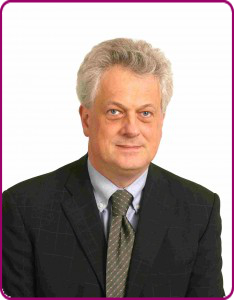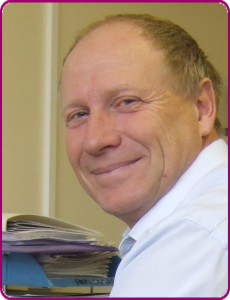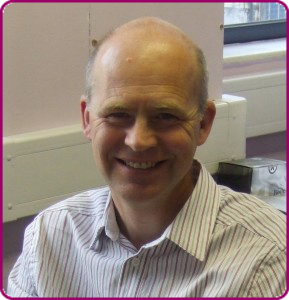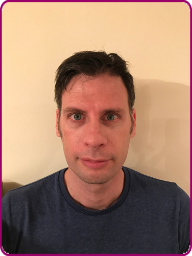|
Title
|
Authors
|
| In-vitro discrimination of wound associated bacteria by volatile compound profiling using Selected Ion Flow Tube - Mass Spectrometry. |
Slade EA, Thorn RMS, Lovering AM, Young A, Reynolds DM. J Appl Microbiol. 2017 Apr 19. |
| Antimicrobial resistance surveillance in urinary tract infections in primary care |
Chin TL, McNulty C, Beck C, MacGowan A
J Antimicrob Chemother. 2016 Jun 26 |
| Early warning score: a dynamic marker of severity and prognosis in patients with Gram-negative bacteraemia and sepsis |
Albur M, Hamilton F, MacGowan AP
Ann Clin Microbiol Antimicrob. 2016 Apr 12;15:23 |
| One-stage or two-stage revision surgery for prosthetic hip joint infection--the INFORM trial: a study protocol for a randomised controlled trial. |
Strange S, Whitehouse MR, Beswick AD, Board T, Burston A, Burston B, Carroll FE, Dieppe P, Garfield K, Gooberman-Hill R, Jones S, Kunutsor S, Lane A, Lenguerrand E, MacGowan A, Moore A, Noble S, Simon J, Stockley I, Taylor AH, Toms A, Webb J, Whittaker JP, Wilson M, Wylde V, Blom AW. Trials. 2016 Feb 17;17:90. |
| The Innovative Medicines Initiative's New Drugs for Bad Bugs programme: European public-private partnerships for the development of new strategies to tackle antibiotic resistance. |
Kostyanev T, Bonten MJ, O'Brien S, Steel H, Ross S, François B, Tacconelli E, Winterhalter M, Stavenger RA, Karlén A, Harbarth S, Hackett J, Jafri HS, Vuong C, MacGowan A, Witschi A, Angyalosi G, Elborn JS, deWinter R, Goossens H. J Antimicrob Chemother. 2016 Feb;71(2):290-5. |
| Development and internal validation of a clinical rule to improve antibiotic use in children presenting to primary care with acute respiratory tract infection and cough: a prognostic cohort study. |
Hay AD, Redmond NM, Turnbull S, Christensen H, Thornton H, Little P, Thompson M, Delaney B, Lovering AM, Muir P, Leeming JP, Vipond B, Stuart B, Peters TJ, Blair PS, 2016 Lancet Respir Med 4:902-10 |
| Management of the exposed total knee prosthesis, a six-year review |
K Young, S Chummun, T Wright, E Darley, T Chapman, A Porteous, J Murray, U Khan. The Knee 23 (2016) 736–739 |
| A non-fatal case of hantavirus cariopulmonary syndrome imported into the UK (ex Panama), July 2014 |
Atkinson B, Jameson LJ, Bovill BA, Aarons EJ, Clwlow J, Lumley S, Latham J, Jenkins MH, MacGowan AP, Simpson AJ, Ahmed J, Brooks TJ, Hewson R.
J Clin Virol. 2015 Jun;67:52-5 |
| Prevalence of antibiotic resistance in Escherichia coli isolated from urine samples routinely referred by general practitioners in a large urban center in south west England |
Chin TL, MacGowan AP, Bowker KE, Elder F, Beck CR, McNulty C
J Antimicrob Chemother. 2015Jul;70(7):2167-9 |
| The global threat of antimicrobial resistance: science for intervention. |
Roca I, Akova M, Baquero F, Carlet J, Cavaleri M, Coenen S, Cohen J, Findlay D, Gyssens I, Heuer OE, Kahlmeter G, Kruse H, Laxminarayan R, Liébana E, López-Cerero L, MacGowan A, Martins M, Rodríguez-Baño J, Rolain JM, Segovia C, Sigauque B, Tacconelli E, Wellington E, Vila J. New Microbes New Infect. 2015 Apr 16;6:22-9. |
| The role of microbial biofilms in prosthetic joint infections. JC. |
Acta Orthop. 2015 Apr;86(2):147-58
Gbejuade HO, Lovering AM, Webb. |
| Clinical presentation and microbiological diagnosis in paediatric respiratory tract infection: a systematic review. |
Thornton HV, Blair PS, Lovering AM, Muir P, Hay AD. Br J Gen Pract. 2015 Feb;65(631). |
| Colistin susceptibility testing: time for a review |
Albur M, Noel A, Bowker K, Macgowan A
J Antimicrob chemother. 2014 May;69(5):1432-4 |
| Lack of upward creep of glycopeptide MICs for methicillin-resistant Staphylococcus aureus (MRSA) isolated in the Uk and Ireland 2001-07 – authors response |
Reynolds R, Hope R, Warner M, MacGowan AP, Livermore DM, Ellington MJ; BSAC Extended Working Party on Resistance Surveillance
J Antimicrob Chemother. 2013 Jul;68(7):1693-4 |
| Frontline antibiotic therapy |
MacGowan A, Albur M
Clin Med (Lond).2013 Jun;13(3):263-8 |
| EUCAST expert rules in antimicrobial susceptibility testing |
Leclercq R, Canton R, Brown DF, Giske CG, Heisig P, MacGowan AP, Mouton JW, Nordmann P, Rodloff AC, Rossolini GM, Soussy CJ, Steinbakk M, Winstanley TG, Kahlmeter G
Clin Microbiol Infect. 2013 Feb;19(2):141-60 |
| Activity of oritavancin against methicillin-resistnat staphylococci, vancomycin-resistant enterococci and ß-haemolytic streptococci collected from western European countries in 2011 |
Morrissey I, Seifert H, Canton R, Nordmann P, Stefani S, Macgowan A, Janes R, Knight D, Oritavancin Study Group
J Antimicrob Chemother. 2013 Jan;68(1):164-7 |
| Lake of upward creap of glycopeptide MICs for methicillin-resistant Staphylococcus aureus (MRSA) isolated in the UK and Ireland 2001-07 |
Reynolds R, Hope R, Warner M, MacGowan AP, Livermore DM, Ellington MJ; BSAC Extended Working Party on Resistance Surveillance
J Antimicrob Chemother. 2012 Dec;67(12):2912-8 |
| Factors influencing the clinical outcome of methicillin-resistant Staphylococcus aureus bacteraemia |
Alubur MS, Bowker K, Weir I, MacGowan A.
Eur J Clin Microbiol Infect Dis. 2012 Mar:31(3):295-301 |
| Does laboratory antibiotic susceptibility reporting influence primary care prescribing in urinary tract infection and other infections? |
McNulty CA, Lasseter GM, Charlett A, Lovering A, Howell-Jones R, MacGowan A, Thomas M
J Antimicrob chemother. 2011 Jun;66(6):1396-404 |
| Use of intravenous co-trimoxazole to treat bacterial infection: analysis of 50 treatment episodes |
Barton E, MacGowan AP
J Chemother. 2010 Aug;22(4)67-9 |
| Bacterial susceptibility to topical antimicrobials and clinical outcomes in bacterial keratits |
Kaye SB, Tuft S, Neal T, Tole D, Leeming JP, Figueiredo F, Armstrong M, Mcdonnell P, Tullo A ,Parry C
Invest Opthalmol & Visual Science 2010 51:362-8 |
| Harmonization of antimicrobial susceptibility testing breakpoints in Europe: implications for reporting intermediate susceptibility |
Brown D, MacGowan A
J Antimicrob Chemother. 2010 Feb;65(2):183-5 |
| Future treatment options for Grem-positive infections-looking ahead |
Barton E, MacGowan A
Clin Microbiol Infect. 2009 Dec;15 Supple 6:17-25 |
| Mycobacteria and allograft heart valve banking: an international survey |
WarwickRM, Magee JG, Leeming JP, Graham JC, Hannan MM, Chadwick M, Crook DW, Yearsley CP, Reyer A, Parker R
J Hosp Infect. 2009 68:255-61 |
| Headwear in laminar flow operating theatres. |
Gordon RJ, Bannister GC, Bowker KE et al.
J Hosp Infect. 2009 Nov;73(3):289-91 |
| Storage of equipment above areas used for opening sterile theatre gowns: is there an infection risk? |
Pentlow A, Murray J, Bowker K.
J Hosp Infect. 2009 Oct;73(2):178-9. |
| Problems of basing patient recruitment for primary care studies on routine laboratory submissions. |
C.A.M.McNulty, M.Thomas, R.John, A.M.Lovering, D.Lewis, A.P.MacGowan
J Clin Pathol. 2007 Nov: 60(11) 1290-3 |
| Clinical implications of antimicrobial resistance to therapy |
MacGowan AP; BSAC Working Party on Resistance Surveillance.
J Antimicrob Chemother. 2008 Nov;62 Suppl 2:ii105-14. Review. |
| Theatre shoes – a link in the common pathway of postoperative wound infection |
Amirfeyz R, Tasker A, Ali S, Bowker K, Blom A.
Ann R Coll Surg Engl. 2007 Sep;89(6):605-8. |
| Occurrence and current frequency of CTX-M-type beta-lactamases from a regional hospital in the South West of England. |
F.Tarrant, A.P.Macgowan, T.R.Walsh
J Antimicrob Chemother. 2007; Apr: 59, 815-6. |
| The effect of surgical approach to blood flow to the femoral head during resurfacing |
Khan A, Yates P, Lovering AM, Bannister GC, Spencer RF
J Bone & Joint Surgery. 2007; Jan: 89:21-5 |
| Occurrence and current frequency of CTX-M type beta-lactamases from a regional hospital in the south-west of England |
Tarrant F, MacGowan AP, Walsh TR
J Antimicrob Chemother. 2007 Apr;59(4): 815-6 |
| A multi-center study evaluating the current strategies for isolating Staphylococcus aureus strains with reduced susceptibility to glycopeptides |
Wootton M, MacGowan, Walsh TR, Howe RA
J Clin Microbiol. 2007;Feb:45(2):329-32 |
| European Committee on Antimicrobial Susceptibility testing (EUCAST) technical notes on antimicrobial susceptibility testing |
Clin Microbiol Infect. 2006 Jun; 12(6):501-3 |
| Topical ethyl chloride fine spray. Does it have any antimicrobial activity? |
Burney K, Bowker K, Reynolds R, Bradley M.
Clin Radiol. 2006 Dec;61(12):1055-7. |
| Cavitatory lung disease complicating empyema in children |
Ramphul N, Eastham KM, Freeman R, Eltringham G, Kearns A, Leeming JP, Hasan A, Hamilton LJR , Spencer DA
Ped Pulmonology. 2006 41:750-53 |
| Childhood empyema – limited potential impact of 7-valent pneumoccocal vconjugate vaccine |
Flether M, leemin JP, Cartwright K, Finn A
Paed Infect Dis Journal. 2006 25:559-60 |
| Should finger rings be removed prior to scrubbing for theatre |
Kelsall NK, Griggs RK, Bowker KE, Bannister GC.
J Hosp Infect. 2006 Apr;62(4):450-2. Epub 2006 Feb 17. |
| Linezolid-induced inhibition of mitochondrial protein synthesis. |
A.S.De Vriese, R.V.Coster, J.Smet, S.Seneca, A.M.Lovering, L.L.Van Haute, L.J.Vanopdenbosch, J.J.Martin, C.C.Groote, S.Vandecasteele, J.R.Boelaert
Clin Infect Dis. 2006 Apr; 42, 1111-7 |
| Expression of tcaA and mprF and glycopeptide resistance in clinical glycopeptide-intermediate Staphylococcus aureus (GISA) and heteroGISA strains |
Wootton M, MacGowan, Walsh TR
Biochem Biophys Acta. 2005 Nov 3;1726(3):326-7 |
| Reduced expression of the atl autolysin gene and susceptibility to autolysis in clinical heterogenous glycopeptide-intermendiate Staphylococcus aureus (hVISA) and GISA strains |
Wootton M, Bennett PM, MacGowan, Walsh TR
J Antimicob Chemother. 2005 Nov;56(5): 944-7 |
| Discrepancy between viable counts and light ouput as viability measurements, following ciprofloxacin challenge of self-bioluminescent Pseudomonas aeruginosa biofilms |
Marques CN, Salisbury VC, Greenman J, Bowker KE, Nelson SM.
J Antimicob Chemother. 2005 Oct;56(4): 665-71 |
| Strain-specific expression levels of Pbp4 exist in isolates of glycopeptide-intermediate Staphylococcus aureus (GISA) and heterogeneous GISA. |
M.Wootton, P.M.Bennett, A.P.MacGowan, T.R.Walsh
Antimicrob Agents Chemother. 2005 Aug; 49, 3598-9. |
| The relationship between primary care antibiotic prescribing and bacterial resistance in adults in the community: a controlled observational study using individual patient data. |
A.D.Hay, M.Thomas, A.Montgomery, M.Wetherell, A.M.Lovering, C.McNulty, D.Lewis, B.Carron, E.Henderson, A.P.MacGowan
J Antimicrob Chemother. 2005 Jul; 56, 146-53 |
| Residual antibiotics in allograft heart valve tissue samples following antibiotic disinfection. |
J.L.Leeming, A.M.Lovering, C.J.Hunt
J Hosp Infect. 2005 Jul; 60, 231-4. |
| Topical fusidic acid/betamethasone-containing gel compared to systemic therapy in the treatment of canine acute moist dermatitis. |
Cobb MA, Edwards HJ, Jagger TD, Marshall J, Bowker KE.
Vet J. 2005 Mar;169(2):276-80. |
| Ventriculitis due to a hetero strain of vancomycin intermediate Staphylococcus aureus (hVISA): successful treatment with linezolid in combination with intraventricular vancomycin. |
F.Amod, I.Moodley, A.K.Peer, J.Sunderland, A.M.Lovering, M.Wootton, S.Nadvi, F.Vawda
J Infect. 2005 Apr; 50, 252-7. |
| Development of a novel assay method for colistin sulphomethate |
M.Wootton, H.A.Holt, A.P.MacGowan
Clin Microbiol Infect. 2005 Mar; 11, 243-4. |
| Diagnosis of invasive pneumococcal infection by serotype-specific urinary antigen detection |
Leeming JP, Cartwright K, MorrisR, Martin SA, Smith MD
Paed Infect Dis Journal. 2005 43:4972-6 |
| Clincal features, aetiology and outcome of empyema in children in the northe east of england: a prospective hospital based study |
Eastman KM, Freeman R, Kearns A, Eltringham G, Clark J, Leeming JP, Spencer DA
Thorax. 2004 59:522-5 |
| Genetic analysis of 17 genes in Staphylococcus aureus with reduced susceptibility to vancomycin (VISA) and hetero VISA. |
M.Wootton, M.B.Avison, P.M.Bennett, R.A.Howe, A.P.MacGowan, T.R.Walsh
J Antimicrob Chemother. 2004 Feb; 53, 406-7 |
| Antimicrobial susceptibility of lower respiratory tract pathogens in Great Britain and Ireland 1999-2001 related to demographic and geographical factors: the BSAC Respiratory Resistance Surveillance Programme |
R.Reynolds, J.Shackcloth, D.Felmingham, A.P.MacGowan
J Antimicrob Chemother. 2003 Dec; 52, 931-43 |
| Cefuroxime resistance in non-beta -lactamase Haemophilus influenzae is linked to ftsl |
Straker K, Wootton M, Simm AM, Bennett PM, MacGowanAP, Walsh TR
J Antimicob Chemother. 2003 Mar;51(3): 523-30 |
| Culture-negative chilhood empyema is usually due to penicillin-sensitive Streptococcus pneumoniae capsular serotype 1 |
Eltringham G, Kearns A, Freeman R et al
J Clin Microbiol. 2003 41:521-522 |
| Infection control of lung function equipment: a practical approach |
Kendrick AH, Johns DP, Leeming JP
Respiratory Medicine. 2003 97:1163-79 |
| A novel polymerase chain reaction assay to detect Mycoplasma genitalium |
Eastick K, Leeming JP, Caul EO, Horenr PJ Millar MR
Molecular Pathology. 2003. 56:25-8 |
| Bacterial contamination of surgical gloves by water droplets spilt after scrubbing. |
Heal JS, Blom AW, Titcomb D, Taylor A, Bowker K, Hardy JR.
J Hosp Infect. 2003 Feb;53(2):136-9. |
| Endemic heteroresistant glycopeptide intermediate Staphylococcus aureus (hGISA) comprising unrelated clonal types and not associated with vancomycin therapy. [French] |
E.Lecaillon, E.P.Gueudet, M.Wootton, T.R.Walsh, A.P.MacGowan, M.E.Jones
Pathologie et Biologie. 2002 Nov; 50, 525-9 |
| Effect of jewellery on surface bacterial counts of operating theatres |
Bartlett GE, Pollard TC, Bowker KE, Bannister GC.
J Hosp Infect. 2002 Sep;52(1):68-70. |
| Bacterial strike-through of re-usable surgical drapes: the effect of different wetting agents |
Blom AW, Gozzard C, Heal J, Bowker K, Estela CM.
J Hosp Infect. 2002 Sep;52(1):52-5. |
| Direct measurement of bacterial penetration through surgical gowns: a new method |
Lankester BJ, Bartlett GE, Garneti N, Blom AW, Bowker KE, Bannister GC.
J Hosp Infect. 2002 Apr;50(4):281-5 |
| Vancomycin therapeutic drug moitoring: is there a consensus view? The results of a UK National External Quality Assessment Scheme (UKNEQAS) for Antibiotic Asays questionnaire |
Tobin CM, Darville JM, Thomson AH, Sweeney G, Wilson JF, MacGowan AP, White LO
J Antimicrob Chemother. 2002 Nov;50(5):713-8 |
| Expression of the lux genes in a clinical isolate of Streptococcus pneumoniae using bioluminescence to monitor gemifloxacin activity. |
Beard SJ, Salisbury V, Lewis RJ, MacGowan AP
Antimicrob Agents Chemother. 2002 Feb; 46, 538-42. |
| To disinfect or not to dsinfect the foot in total joint arthroplasty of the lower limb |
Blom AW, Lankaster B, Bowker KE, Bannis GC.
J Hosp Infect. 2001 Dec;49(4):304-5. |
| The passage of bacteria through surgical drapes |
Blom A, Estela C, Bowker K, MacGowan A, Hardy JR.
Ann R Coll Surg Engl. 2000 Nov;82(6):405-7. |
| Carriage of antibiotic-resistant bacteria by healthy children |
Millar M, Walsh TR, Freeman R et al
J Antimicrob Chemother. 2001 ;47:605-10 |
| Evaluation of current methods of detection of staphylococci with reduced susceptibility to glycopeptides. |
Walsh TR, Bolstrom, A, Qwarnstrom A, Ho P, Wootton M, Howe RA, MacGowan AP, Diekema D
J Clin Microbiol 2001 Jul; 39: 2439-44. |
| A modified population analysis profile (PAP) method to detect hetero-resistance to vancomycin in Staphylococcus aureus in a UK hospital. |
J Antimicrob Chemother. 2001 Apr;47; 399-403. |
| Detection of glycopeptide resistance in Staphylococcus aureus. |
T.R.Walsh, R.A.Howe, M.Wootton, P.M.Bennett, A.P.MacGowan
J Antimicrob Chemother. 2001 Mar; 47: 357-8. |
| Investigation of an outbreak of ciprofloxacin-resistant Neisseria gonorrhoeae using a simplified opa-typing method |
Palmer HM, Leeming JP, Turner A.
Epidemiology and Infection. 2001.126:219-24 |
| A multiplex polymerase chain reaction to differentiate B lactamse plasmids of Neisseria gonorrhoeae |
Palmer HM, Leeming JP, Turner A.
J Antimicrob Chemother. 2000. 45: 777-82 |
| Diagnosis of invasive aspergillosis in bone marrow transplant recipients by polymerase chain reaction |
Williamson ECM, Leeming JP, Palmer HM et al
British Journal of Haematology. 2000; 108:132-9 |
| Use of meropenem 3g once daily for outpatient treatment of infective exacerbations of bronchiectasis |
Darley ES, Bowker KE, Lovering AM, Harvey JE, Macgowan AP.
J Antimicrob Chemother. 2000 Feb;45(2):247-50. |
| Detection of extended-spectrum beta-lactamases with Etest and double-disc potentiation methods. |
D.F.Brown, J.Andrews, A.King, A.P.MacGowan AP
J Antimicrobl Chemother. 2000 Aug; 46: 327-8. |
| Heterogeneous resistance to vancomycin in Staphylococcus aureus. |
R.A.Howe, M.Wootton, T.R.Walsh, P.M.Bennett, A.P.MacGowan
J Antimicrob Chemother. 2000 Jan; 45: 130-2 |





